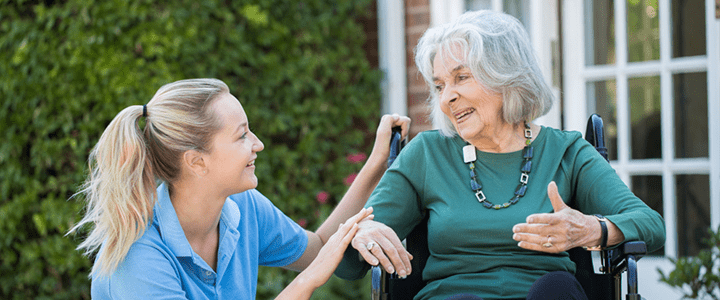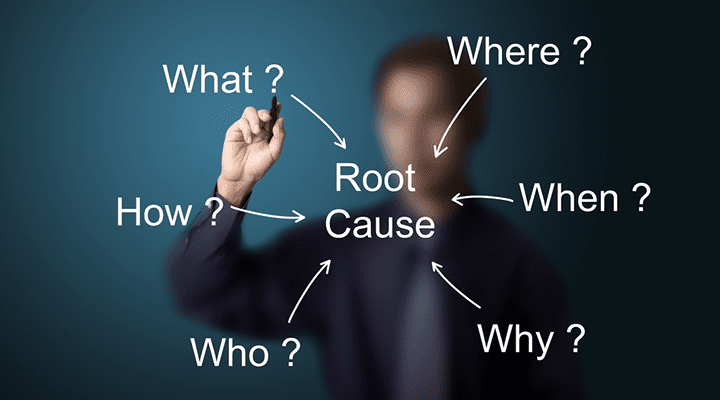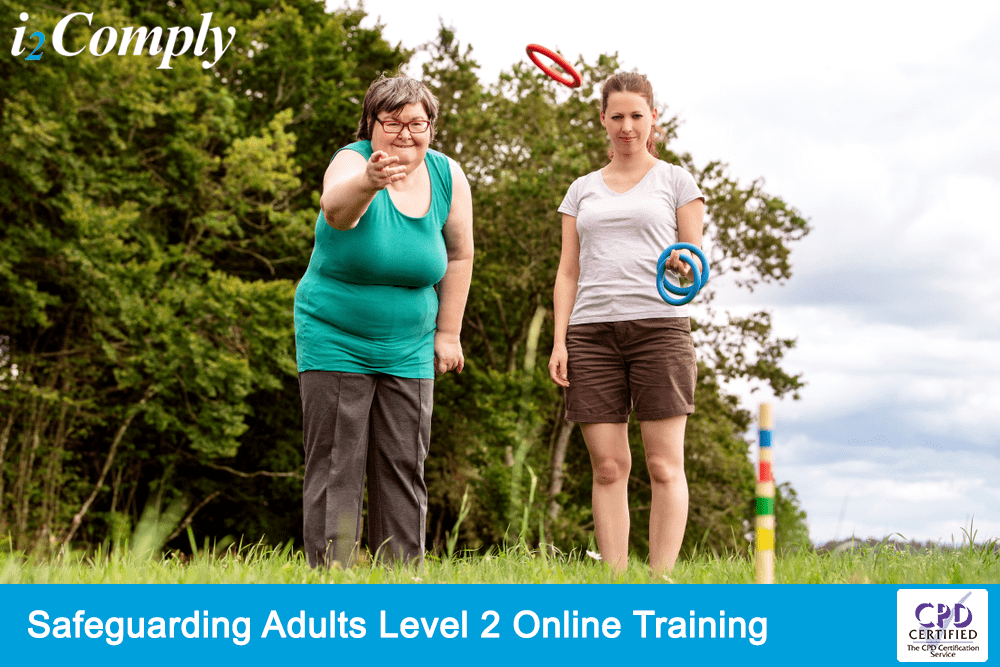Many adults are at risk of harm. In 2023-2024, 176,560 adults safeguarding enquiries were raised in England. These individuals require care and support, but are at risk or experience harm, abuse and neglect and cannot protect themselves. So, everyone involved with an adult at risk of harm must do their part to protect them.
The 6 principles of safeguarding outline the best ways to safeguard vulnerable adults. Understanding these principles and following them is an essential part of keeping people safe from harm, abuse, and neglect.
This article explains what safeguarding adults means and what are the 6 key principles of safeguarding. It also introduces the key legislation that relate to adult safeguarding. This knowledge will make you aware of the correct practices of safeguarding. As a result, you will be able to help protecting those around you who are vulnerable to harm.
What is safeguarding adults?
The Care Act 2014 defines adult safeguarding as protecting an adult’s right to live in safety, free from abuse and neglect.
Anyone who receives or is in need of, community care services due to mental health issues, disability, age or illness may be unable to protect themselves from harm, abuse and neglect. So, safeguarding requires organisations and communities working together to prevent and stop the risks of a vulnerable person being in danger as well as the actual cases of abuse and neglect. Health and social care organisations have particular responsibilities, however everyone involved with an adult at risk of harm has a part to play.
What are the 6 principles of safeguarding?

The UK Government created the 6 principles of safeguarding that aim to prevent and reduce the risk of harm to vulnerable adults from abuse, neglect and exploitation while supporting them in having control over their lives and making choices without coercion. The Care Act 2014 sets out these six principles, and anyone who works in care and support services and all settings where there may be adults at risk of harm, must follow them. Understanding and following these 6 principles of safeguarding is an essential part of keeping adults safe.
The following principles define the steps that organisations and individuals need to take to protect vulnerable adults.
1. Empowerment
Empowerment refers to supporting and encouraging individuals to make their own choices and give informed consent. In other words, empowerment focuses on giving individuals freedom and power over decisions regarding their care and treatment as well as giving them the confidence to make those decisions. Individuals who require care and support, have a right to decide how they want to live and what outcome they want out of their care. So, care providers should support, reassure, and inform individuals of the potential outcomes so that they have all the information they need to make their decision. Then, care providers should plan and provide personalised care around their needs and wishes. The empowerment principle ensures that individual’s opinion, values, and feelings are taken into consideration when providing care.
2. Prevention
Prevention focuses on stopping harm before it happens. It is better to act before harm occurs than to try fix things after they have gone wrong. To achieve this, it is important to raise awareness about harm, abuse, and neglect within the community. Also, organisations should train employees to recognise the signs of an adult at risk and understand who may be vulnerable. It is also important to provide clear and accessible information around safeguarding to individuals in need of care and support. So that they know what harm, abuse and neglect is and who to ask for help. As a result, service providers can act on it before an individual is in a serious danger.
3. Proportionality
Proportionality means only involving yourself to the extent that you are needed. To ensure that a safeguarding issue is dealt with proportionality, you must evaluate the risk involved in a decision or action and make the least intrusive response appropriate to the risk presented. This means that when you suspect an individual is at risk of neglect, abuse, or harm, it is very important that your response is correct as excessive reaction to the situation can sometimes cause more harm. So, it is essential to respect the individual, act in the best interests of the vulnerable person and only get involved as much as it is needed.
4. Protection
Protection is about providing care and support to vulnerable people when they need it. So, those involved in safeguarding must understand safeguarding processes and best practices to be ready to protect people from harm. This means that they must be aware of the steps they need to take when abuse has occurred. They must know what to do if there are any concerns, how to stop the abuse and how to provide help and support to people at risk.
5. Partnership
Partnership encourages organisations to work in collaboration with local communities. Safeguarding is a communal process. So, everyone has a part to play in preventing, detecting, and reporting neglect and abuse. If organisations raise awareness around adults safeguarding, local communities will understand how they can spot harm, abuse and neglect. Also, they will know who to report to if they suspect that a person may be at risk. Then, those who are directly responsible for safeguarding, would be able to discover those in need of protection and provide support to them.
6. Accountability
Accountability means that every organisation and person involved in safeguarding must accept responsibility for what they do. Also, they need to be transparent about what has been done and why. Everyone who is responsible for safeguarding, should have clear roles and responsibilities established within the organisation. This way they know exactly what they need to do in regard to safeguarding.
Safeguarding Adults legislation

There are seven key pieces of safeguarding legislation that aim to protect vulnerable adults in England. Failure to adhere to the law can put a vulnerable individual in danger and incur prosecutions and high fines.
The Care Act 2014 places a responsibility on local authorities to promote the safety and wellbeing of individuals who have care and support needs. This includes leading a multi-agency local adult safeguarding system, that aims to prevent abuse and neglect and stop it quickly when it occurs; establishing safeguarding adults boards, which develop and implement joint safeguarding strategy; making enquiries if someone is being abused or neglected, or is at risk of abuse or neglect in their area to decide what actions may be needed; carrying out safeguarding adults reviews when someone with care and support needs dies as a result of neglect or abuse and arranging for an independent advocate to represent and support an individual who is the subject of a safeguarding enquiry, if required.
The Duty of Candour aims to ensure transparency and honesty when things go wrong. It requires health and social care providers to inform the person concerned when something has gone wrong as soon as possible and provide support to them.
The Mental Capacity Act 2005 seeks to protect and empower individuals who lack mental capacity and as a result are unable to make choices for themselves. It requires the person acting on behalf of an individual who does not have mental capacity to act in their best interests.
The Human Rights Act 1998 gives specific rights to every person living in the UK. The protected rights that are directly related to safeguarding vulnerable adults include the right to life, right to freedom from degrading and inhumane treatment, right to liberty and security and right to a private life, family life and a home life.
The Data Protection Act 2018 sets rules for how organisations need to handle personal data. It protects individuals’ data from being placed in the wrong hands, which may increase the risk of abuse or neglect.
The Equality Act 2010 protects people from discrimination due to the protected characteristics. These are race, sex, gender reassignment, disability, sexual orientation, religion, age, martial or civil partnership status, and pregnancy or maternity. When assessing whether an individual is vulnerable, there cannot be any discrimination based on these characteristics.
The Serious Crime Act 2015 introduced an offence of coercive and controlling behaviour in intimate and familial relationships.
Need Safeguarding Adults training?
Ensure your staff have the knowledge they need to protect vulnerable adults. We offer the following CPD-certified online Safeguarding Adults Training Course.
Looking for other Health & Social Care courses? Take a look at our full range of online Health & Social Care courses.
Have a question?
If you have a question or require more information on any of our training courses. Please contact our friendly support team on 0808 167 6590 or sales@i2comply.com.




